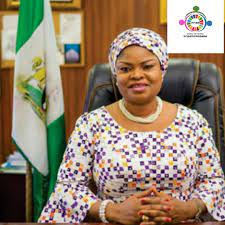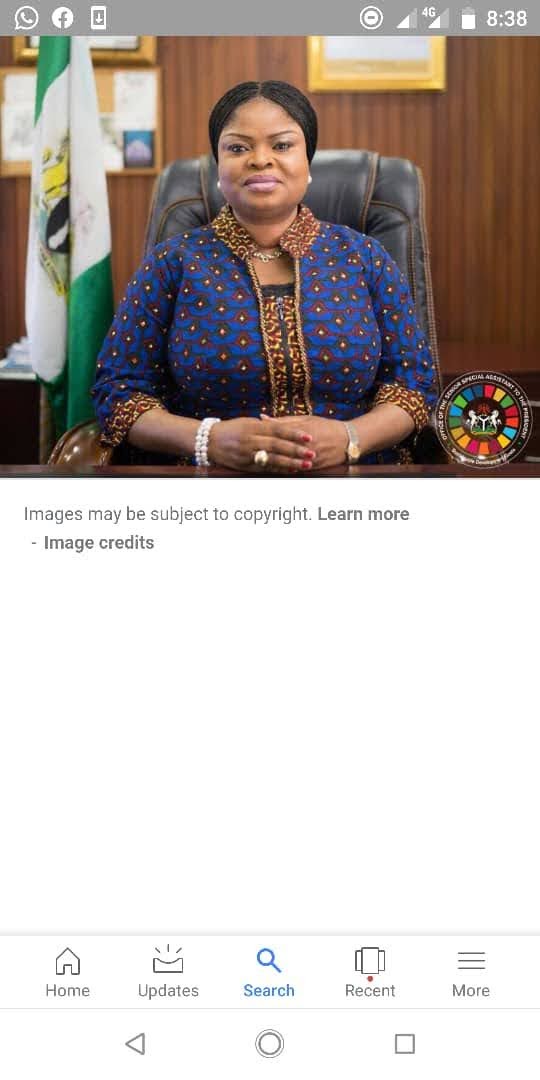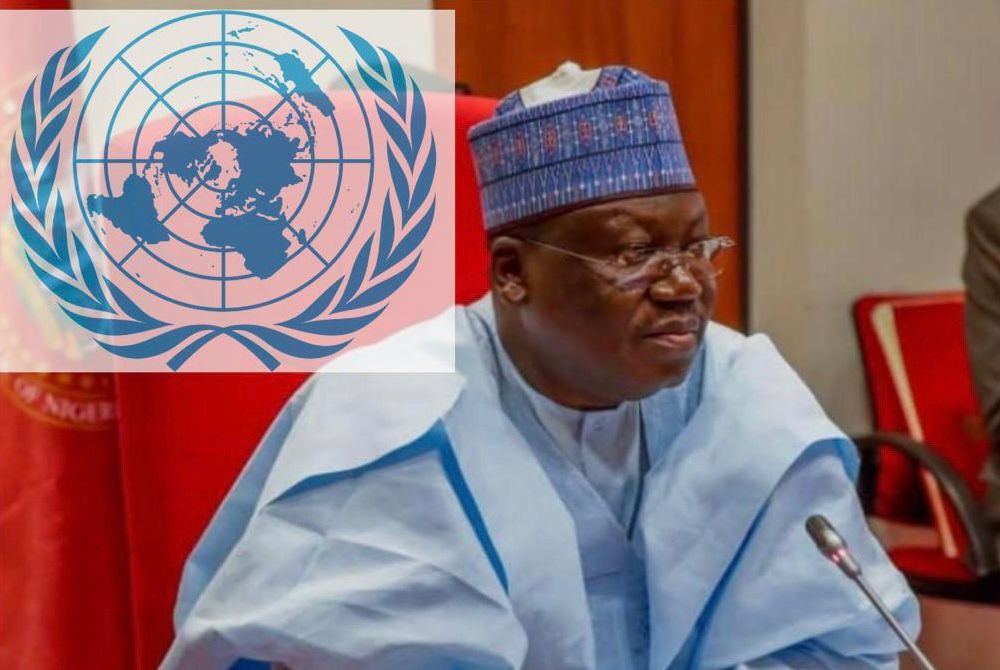News
UN, Presidency organize 2-day training for Borno journalists, tasks media on balance reportage

The United Nations Information Center (UNIC) in collaboration with the Office of the Senior Special Assistant (SSA) to the President on Sustainable Development Goals (SDGs) has organized a two day training workshop on SDGs for Borno State members of the Nigerian Union of journalists (NUJ).
Declaring open the two-day training of Journalists on Sustainable Development Goals (SDGs) and Developing a Network of Journalists for Sustainable Development on Monday held at Qidas Event Centre, Off Layin Qulbati, Opposite IRC office, Damboa Road, Maiduguri, the Senior Special Assistant (SSA) to the President on Sustainable Development Goals (SDGs), Hon. Princess Adejoke Orelope-Adefulire tasked Nigerian journalists to be objective in the their reportage and ensure their reports are balanced and accurate.

She also charged journalists to engage in investigative journalism to ascertain the true position of projects and programmes of government, especially, as such activities concerns the people in the downtrodden society while commending the media for its coverage of the activities across the implementing states and launching of SDGs by Mr. President.
The SSA to the President while appreciating the role and support of the the Media Awareness and Information Network (MAIN for organizing the training workshop, she disclosed that the presidency intends to hold similar training workshop for journalists in the six geo political zones of the country and also establish a network for journalists in SDGs to monitor, educate, enlighten and inform the general public, particularly, the rural populace on the existence, functions and relevance of SDGs in their communities.
She added that it will be recalled that President Muhammadu Buhari, GCFR, joined other World Leaders during the 70th Session of the United Nations General Assembly (UNGA) in September 2015 to adopt the 2030 Agenda for Sustainable Development.
“The 2030 Agenda for sustainable development envisions a present and a future that is economically sustainable, socially inclusive and environmentally resilient. This vision is expressed through the framing of the 17 SDGs; 169 targets and 230 Key Performance Indicators. Taken together, the SDGs are a Universal call to action to end poverty, safeguard the planet and ensure all people enjoy peace and prosperity by the year 2030.
“And to make meaningful progress on the SDGs, they must be carefully integrated into national and sub-national policies and plans.

And the media must play its role as facilitators and enablers of inclusive and sustainable development. Since the historic adoption of the SDGs, the Nigerian government has continued to demonstrate commitment in the overall implementation of the SDGs, including the timely establishment of institutional frameworks at the national and sub-national levels to guarantee effective implementation of the SDGs.
“Indeed, in the last six years, we have worked closely with the United Nations Development System and our development partners to strengthen SDGs implementation capacity at all levels of governance in Nigeria. Such strategic partnerships and support demonstrate our collective commitment to the transformative promise of the 2030 Agenda.
“The nexus of Journalism and the SDGs places the media at the core of sustainable development – both as contributors and as beneficiaries. Through this capacity building and network of Sustainability Reporters, the overall outcome will be to enhance skills and knowledge, which will potentially impact on government policies and public awareness, through SDG-based reporting.
“By learning how to monitor specific indicators on SDGs, compelling stories can be developed with a view to strongly influence decision-makers and members of the public,” Adejoke said.
The SSA further explained that as advocacy partners, the media is indeed instrumental in helping to track our progress on the implementation of the SDGs in different capacities: as government; as development partners; as organized private sector; as academia and civil society while noting that, It is imperative to note that the attainment of the SDGs requires a ‘whole-of-society’ approach, and as such, you must utilise your voices to bring this awareness to the fore.
“Specifically, SDG-16 aims to ‘promote peaceful and inclusive societies for sustainable development, provides access to justice for all and builds effective, accountable, and inclusive institutions at all levels’.Thus, SDG-16 has clearly embodied the strategic roles of media practitioners in the 2030 Agenda for sustainable development.
“Target 16.10 in particular, provides that nations of the world have access to information and protect fundamental freedoms in line with national and international agreements At our national level, the Freedom of Information Act 2011, empowers individuals, groups or organisations to access information from public and private sector organisations providing public services.
“In this context, it is within your rights to request information for the delivery of public services, such as education, health, water and sanitation, gender equality, to name just a few. In doing so constructively, you can help to highlight the important narratives that are creating sustainable impact for the future of ordinary Nigerians,” Adejoke said
According to her, i Nigeria today, over two-thirds of people access the news in one form of the other, at least once every day. This goes to show the significance of your role as journalists in helping to shape the content that Nigerians consume.
While stating that the training will provide you with a better understanding of the 2030 Agenda for sustainable development, the implementation progress in Nigeria, as well as the crucial role of the media in implementation support and reportage.
” You must now encourage the provision of timely information based on the SDG targets and indicators. In this digital age, information is being disseminated and distributed more rapidly than ever before. Following the advent of the COVID-19 pandemic, even more Nigerians are consuming online media.
“We have witnessed an acceleration of the digital economy occasioned by COVID-19 pandemic and as such, we must begin to look at how we can use digitalisation to advance the implementation of the SDGs in Nigeria.
“Beyond this, you have a responsibility in helping to curb the spread of misinformation, especially in this digital era. To promote a stronger and common future for all Nigerians, you must help to create awareness on the need to fact-check information before its dissemination.
“We cannot achieve the SDGs without the full participation of the media. For emphasis, your role includes sensitisation, education, advocacy, amplification and collaboration. All hands must be on deck to build back better a nation and a world where ‘no one is left behind’.
“As I have always stated, the support of the media is pertinent because as journalists, your background and training equips you with the capacity to engage actively with the public and private sectors towards the achievement of the SDGs in Nigeria.
“I enjoin you to regard yourselves as part of the key actors determined to support rapid socioeconomic transformation as embedded in the 2030 Agenda. The challenges we face in our efforts to achieve the SDGs are numerous, complex and multi-faceted. Nevertheless, with all stakeholders working together and in synergy – as being demonstrated here, we will certainly overcome these.
“Let me conclude this Address by re-affirming President Muhammadu Buhari’s commitment to the successful implementation of the SDGs in Nigeria. We urge you to strengthen partnership and collaboration with us, as we continue to advocate for inclusive and sustainable national development in this ‘Decade of Action’ for the SDGs.
“As a government, you can count on our support and collaboration in our genuine desire to achieve the transformative promise of the 2030 Agenda,” Adejoke said.

























